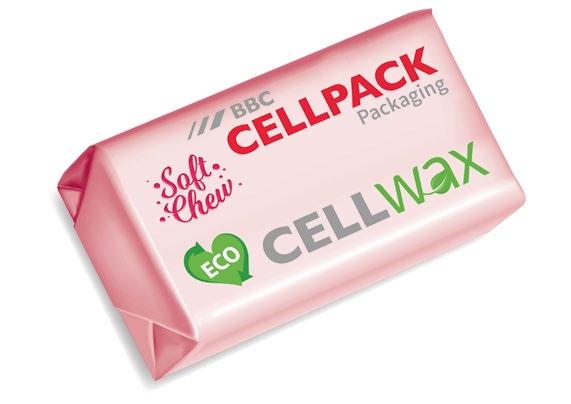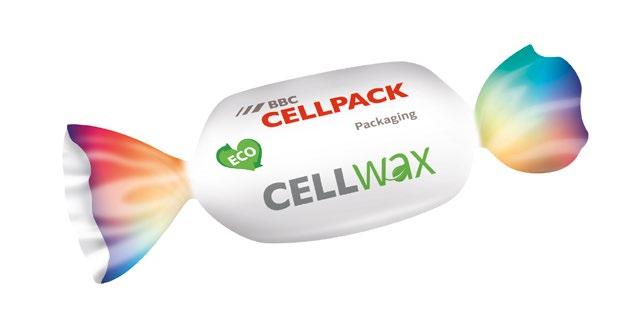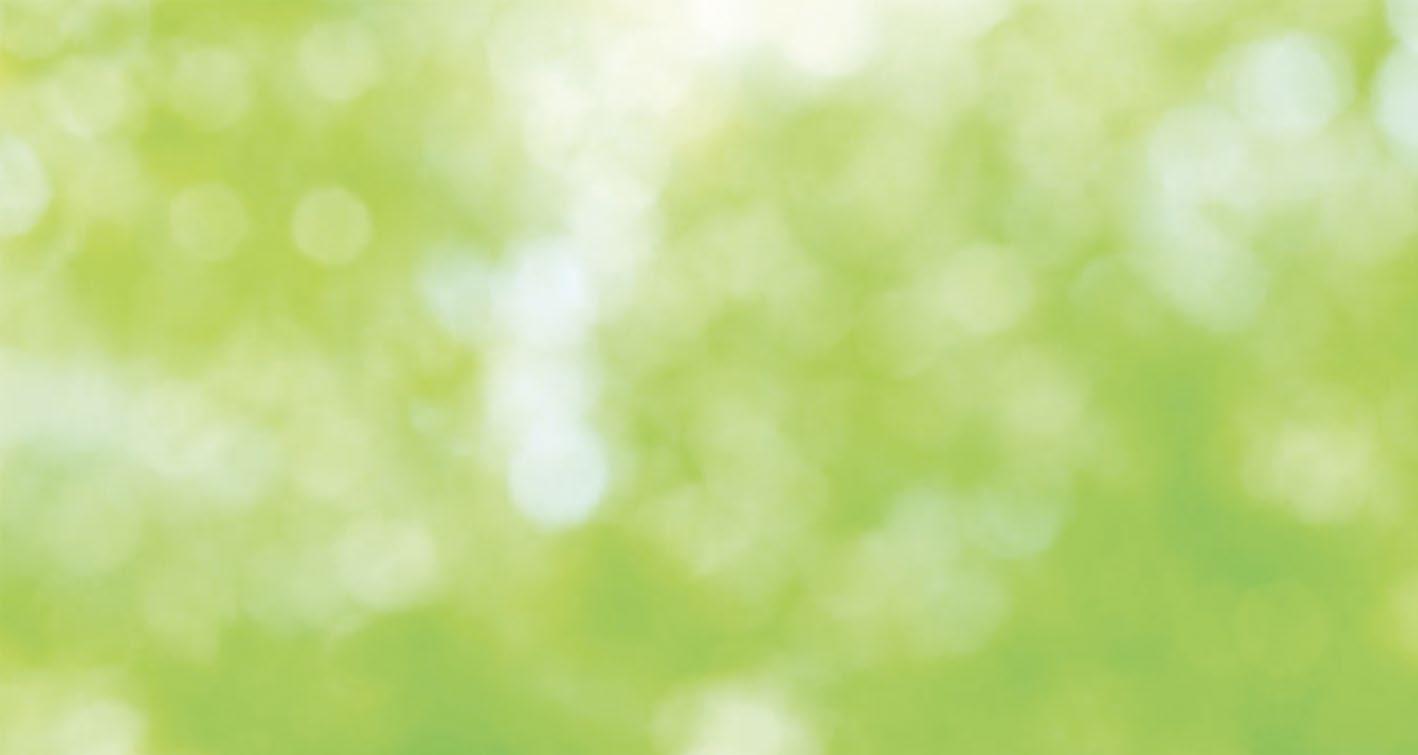
4 minute read
BBC Cellpack: Time to make the
BBC CELLPACK: TIME TO MAKE THE SWITCH TO PAPER?
BBC Cellpack Packaging suggests that paper packaging is ‘the ideal alternative to plastic’. That’s why they’ve been asking the question: Do you dare to paper?
BBC Cellpack Packaging – a part of the Swiss BBC Group – isn’t just focused on paper: it offers a range of solutions for the food and nonfood industries, including stand-up pouches, films and cushion pads, all with an eye to building the circular economy.
“As a packaging manufacturer, we have a responsibility to produce environmentally friendly packaging to protect our planet and future generations,” says CEO Frank Filipps. “We have developed recyclable product ranges:

CEO Frank Filipps
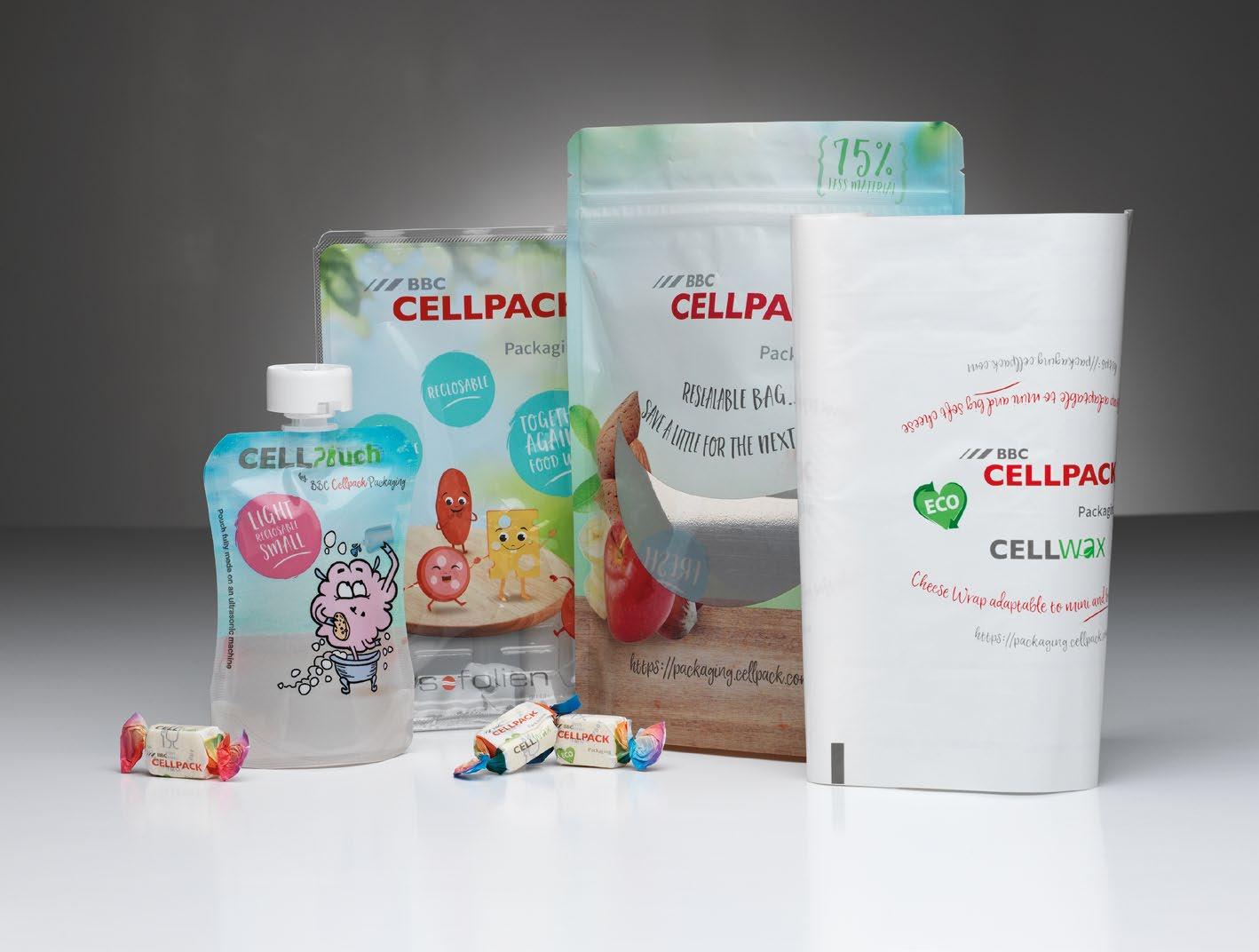
CELLPouch, our recyclable Stand-Up pouch, CELLRoll, our eco-friendly plastic film range and CELLWax, our eco-designed paper range. We support companies in their circular economy approach to move towards a sustainable ecological transition that is good for the environment, good for the customers, good for the consumers.”
But today, in particular, it wants to change the narrative around paper packaging – especially the assumption that paper doesn’t have the required barrier properties for packaging perishable products. While it is certainly the case that we have a way to go before barrier papers can replace plastics for all forms of packaging, today there are far more applications for paper in the FMCG sector than there ever were before.
BBC Cellpack has added its own unique solutions to the growing plethora of barrier papers on the market in an attempt to, as it says, ‘break old habits with eco-responsible paper packaging that reflects our commitment to natural materials, new attitudes and new recycling opportunities’.
And contrary to what some might believe, it says papers are suitable for wrapping and protecting even highly perishable products such as softripened cheese. One of the company’s processes involves laminating a PP film onto coated paper, creating a wrapper that enables cheese to age alongside it. Once the product has been consumed, the paper and the film can be separated for recycling.
The development of CELLWax can clearly be seen in the context of ‘breaking old habits’. Available as both ‘twists’ and ‘wraps’, CELLWax is a bio-sourced coated paper range, using vegetable wax barrier to ensure it is fully recyclable and food grade inks.
“Choosing the paper means going back to origins of packaging,” says Aude Paustian, Head of Product Development. “As a renewable and recyclable material, paper has once again become a trendy raw material offering multiple technical and visual possibilities. At BBC Cellpack Packaging we bring our paper expertise to support our customers’ developments. Paper alternatives to plastic packaging have become our specialty and our trademark. Environmentally friendly sourcing, FSC certified papers, vegetable waxes: our paper solutions are entirely eco-designed.”
With this vision in mind, the company has been working with a big market player in confectionery on their new packaging – a concentrate of recyclability and technical innovations.
“Our customer as a leader in the confectionery market is fully focused on its responsibility toward the future of the planet and the necessity to replace plastic packaging where possible. When they launched their new confectionery product it actively looked for a sustainable and recyclable packaging. Cellpack’s 100% certified recyclable and sustainable wax coated twist paper was not only the perfect technical solution but was also an immediately available and proven alternative packaging to plastic twist films.”

Of course, presenting papers as the ‘ideal alternative’ to plastic is quite a statement, when we consider how reliant our world is on the latter – an undeniably cheap, hygienic material which is also, as many of its proponents would argue, far less resource-intensive to produce than paper. The counter-argument to this would be that responsibly sourced paper, if taken from renewable forests, can be superior in terms of its environmental
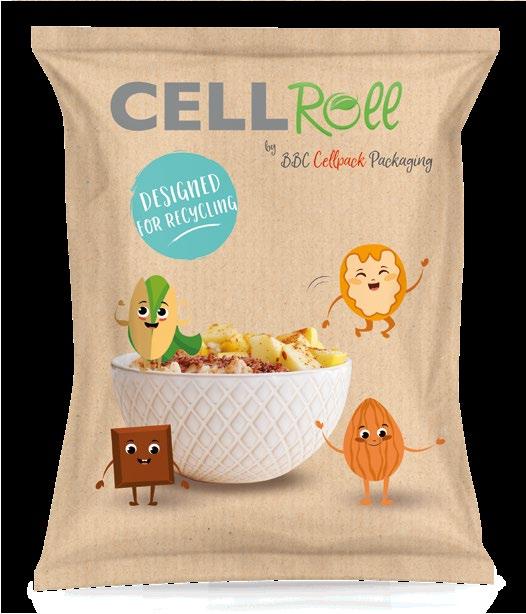
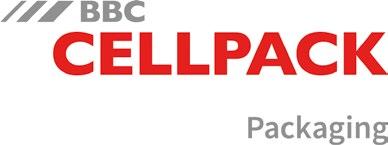
footprint as it uses no fossil fuels in production if biofuel is predominantly employed. What is needed, of course, is for the entire supply chain, governments and NGOs to work together to improve the recycling infrastructure and boost recycling rates across the board – but one could argue this holds true for all materials.
So is paper, as BBC Cellpack believes, ‘Packaging for a better future’? Can there be a future without plastics – or at least a future where their use is vastly reduced? We’re not quite there yet but solutions such as those offered by BBC and others besides are certainly pushing the boundaries of what is possible. And even if we can’t completely replace plastics, a healthy questioning of the perception that plastic is the ‘only’ solution for many perishable applications may, at the very least, help to channel innovation into the development of real alternatives.
BBC Cellpack paper packaging solutions: • Product protection • Barrier properties • Food-safe inks • Non-stick • Malleable paper that can be twisted and folded.
